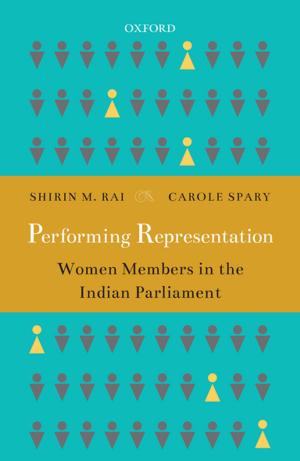Mapping Power
The Political Economy of Electricity in India’s States
Business & Finance, Economics, Economic Development, Nonfiction, Social & Cultural Studies, Political Science, Politics, Economic Conditions, International| Author: | ISBN: | 9780199093748 | |
| Publisher: | OUP India | Publication: | August 22, 2018 |
| Imprint: | OUP India | Language: | English |
| Author: | |
| ISBN: | 9780199093748 |
| Publisher: | OUP India |
| Publication: | August 22, 2018 |
| Imprint: | OUP India |
| Language: | English |
Electricity is critical to enabling India’s economic growth and providing a better future for its citizens. In spite of several decades of reform, the Indian electricity sector is unable to provide high-quality and affordable electricity for all, and grapples with the challenge of poor financial and operational performance. To understand why, Mapping Power provides the most comprehensive analysis of the political economy of electricity in India’s states. With chapters on fifteen states by scholars of state politics and electricity, this volume maps the political and economic forces that constrain and shape decisions in electricity distribution. Contrary to conventional wisdom, it concludes that attempts to depoliticize the sector are misplaced and could worsen outcomes. Instead, it suggests that a historically grounded political economy analysis helps understand the past and devise reforms to simultaneously improve sectoral outcomes and generate political rewards. These arguments have implications for the challenges facing India’s electricity future, including providing electricity to all, implementing government reform schemes, and successfully managing the rise of renewable energy.
Electricity is critical to enabling India’s economic growth and providing a better future for its citizens. In spite of several decades of reform, the Indian electricity sector is unable to provide high-quality and affordable electricity for all, and grapples with the challenge of poor financial and operational performance. To understand why, Mapping Power provides the most comprehensive analysis of the political economy of electricity in India’s states. With chapters on fifteen states by scholars of state politics and electricity, this volume maps the political and economic forces that constrain and shape decisions in electricity distribution. Contrary to conventional wisdom, it concludes that attempts to depoliticize the sector are misplaced and could worsen outcomes. Instead, it suggests that a historically grounded political economy analysis helps understand the past and devise reforms to simultaneously improve sectoral outcomes and generate political rewards. These arguments have implications for the challenges facing India’s electricity future, including providing electricity to all, implementing government reform schemes, and successfully managing the rise of renewable energy.















